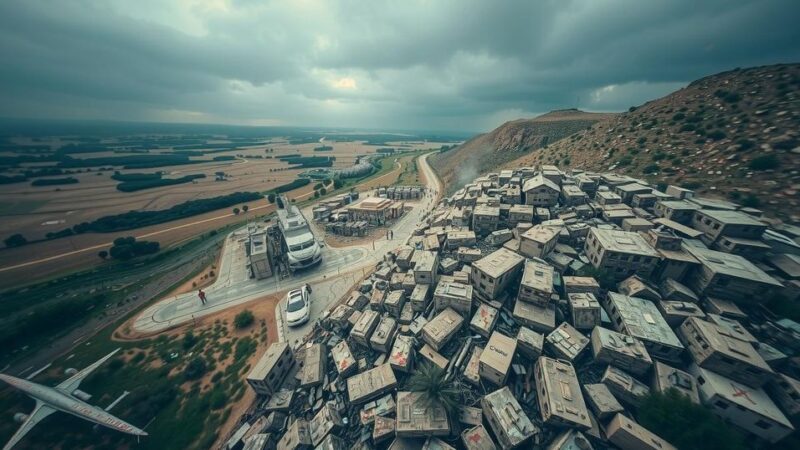This article highlights the struggles faced by Awad Usman, a Sudanese refugee farmer in South Sudan, as he adapts to climate change challenges. The UN Refugee Agency (UNHCR) is working towards providing support and resources to enhance food security and resilience among refugees facing extreme weather impacts, including recent flooding. Awad’s successful crop yield this season, aided by UNHCR initiatives, illustrates the positive impact of such interventions on community sustainability and self-reliance.
Awad Usman, a refugee from Sudan, relies on a prayer for protection as he cultivates sesame and sorghum in Maban, South Sudan. Having fled conflict over ten years ago, he built a life in the region, which is prone to extreme weather. The UN Refugee Agency (UNHCR) emphasizes the urgent need for climate adaptation funding, especially for refugees like Awad, who face severe climate impacts. South Sudan, one of the most climate-vulnerable nations, has witnessed drastic changes in rainfall patterns and increasing flooding. In 2021, floods devastated Awad’s crops, forcing him to seek other means to provide for his family. The local economy, affected by food insecurity, poses additional challenges for refugees and host communities. UNHCR’s initiatives aim to enhance livelihoods by providing resources and training for climate-resilient farming practices, including crop diversification and building dykes for flood protection. Awad’s proactive involvement in these programs allowed him to harvest successfully this season despite potential flooding. He and his family actively tend their fields while remaining hopeful for future yields, symbolized by Awad’s song for his crops, which brings him joy.
The article discusses the plight of refugee farmers in South Sudan, highlighting the significant challenges posed by climate change and extreme weather. It centers on Awad Usman, who utilizes cultural practices and support from the UN Refugee Agency (UNHCR) to cultivate crops in a resource-scarce environment. The focus is on the intersection of climate change adaptation and the socioeconomic dynamics affecting refugees and local communities in South Sudan, a region heavily impacted by both conflict and environmental crises.
This article underscores the vulnerability of refugee farmers in South Sudan amidst escalating climate challenges. Initiatives by UNHCR, aimed at providing training and resources, are essential for enhancing food security and supporting self-sufficiency. Awad’s story exemplifies resilience and the potential for successful adaptation to climate change, emphasizing the importance of continued support for vulnerable populations facing environmental upheaval.
Original Source: www.unhcr.org



